Question
Question: Show solution and explanation 1. Which statement is incorrect regarding property, plant and equipment (PPE)? a. PPE are tangible items that are held for
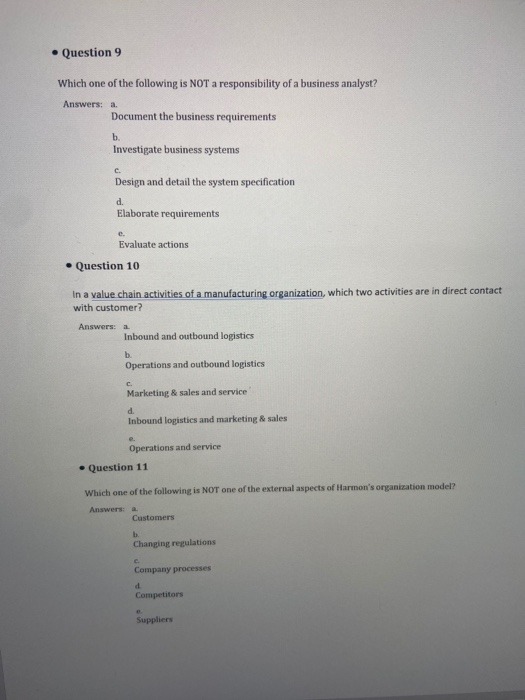
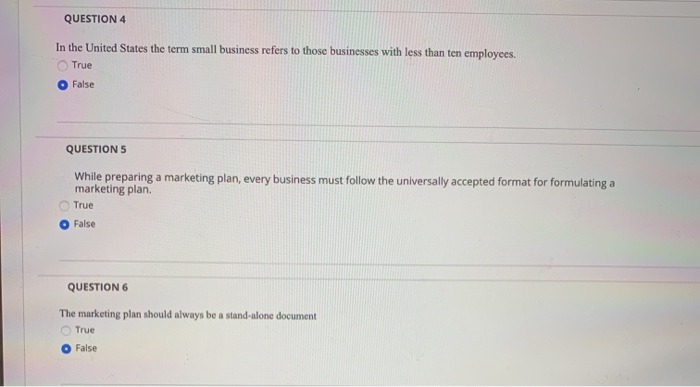
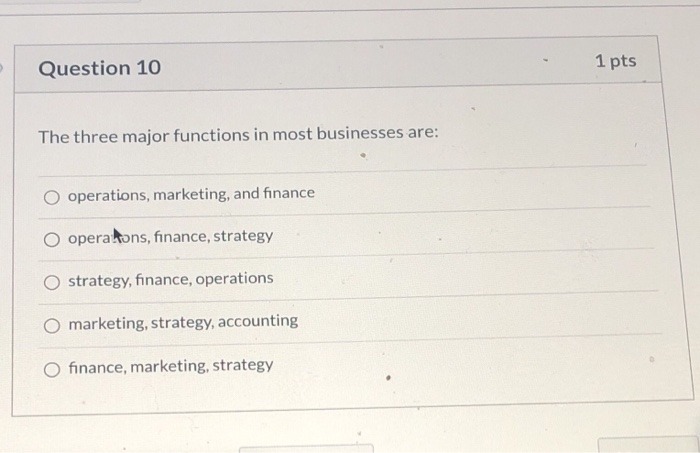

Question:
Show solution and explanation
1. Which statement is incorrect regarding property, plant
and equipment (PPE)?
a. PPE are tangible items that are held for use in the
production or supply of goods or services, for
rental to others, or for administrative purposes;
and are expected to be used during more than one
period.
b. The cost of an item of PPE shall be recognized as
an asset if, and only if, it is probable that future
economic benefits associated with the item will
flow to the entity and the cost of the item can be
measured reliably.
c. An item of PPE should be measured on initial
recognition at its cost.
d. PPE are presented in the statement of financial
position either as current or noncurrent.
2. Which of the following will be most likely included in
the line item property, plant and equipment in an
entity's statement of financial position?
a. Bearer animals
b. Land held for sale in the ordinary course of
business
c. Land and building for rental to others
d. Equipment for rental to others
3. Which of the following will be least likely included in
the line item property, plant and equipment in an
entity's statement of financial position?
a. Spare parts, stand-by equipment and servicing
equipment
b. Equipment acquired for safety or environmental
reasons
c. Moulds, tools and dies
d. Production supplies
4. The following information pertains to Queen
Corporation's property, plant and equipment:
Carrying amount, beginning P5,000,000
Acquisitions 1,800,000
Capitalized subsequent expenditures 500,000
Repairs and maintenance 160,000
Reclassifications to 380,000
Reclassifications from 410,000
Disposals/retirements 1,240,000
Depreciation 630,000
Impairment 290,000
The carrying amount of Queen's property, plant and
equipment at the end of the period is
a. P5,110,000 c. P5,170,000
b. P5,140,000 d. P5,270,000
5. The cost of an item of property, plant and equipment
comprises:
I. Its purchase price, including import duties and
non-refundable purchase taxes, after deducting
trade discounts and rebates.
II. Any costs directly attributable to bringing the asset
to the location and condition necessary for it to be
capable of operating in the manner intended by
management.
III. The initial estimate of the costs of dismantling and
removing the item and restoring the site on which
it is located, the obligation for which an entity
incurs either when the item is acquired or as a
consequence of having used the item during a
particular period for purposes other than to
produce inventories during that period.
a. I, II, and III c. I and III only
b. I and II only d. I only
6. Costs directly attributable to bringing the asset to the
location and condition necessary for it to be capable of
operating in the manner intended by management
exclude
a. Costs of employee benefits arising directly from
the construction or acquisition of the item of
property, plant and equipment.
b. Costs of site preparation.
c. Initial delivery and handling costs
d. Administration and other general overhead costs.
7. Costs directly attributable to bringing the asset to the
location and condition necessary for it to be capable of
operating in the manner intended by management
exclude
a. Installation and assembly costs.
b. Costs of testing whether the asset is functioning
properly.
c. Professional fees.
d. Costs of opening a new facility.
8. The cost of an item of property, plant and equipment
may include
a. Costs of introducing a new product or service.
b. Costs of advertising and promotional activities.
c. Costs of conducting business in a new location or
with a new class of customer.
d. Costs incurred relating to leases of assets that are
used to construct an item of property, plant and
equipment, such as depreciation of right-of-use
assets.
9. Extra Corporation is installing a new machine at its
production facility. It has incurred these costs:
Purchase price (including input tax of
P300,000)
P2,800,000
Initial delivery and handling costs 200,000
Costs of site preparation 600,000
Consultants used for advice on the
acquisition of the machine
700,000
Installation and assembly costs 500,000
Costs of testing 100,000
Costs of training employees on how to
use the machine
80,000
Estimated dismantling costs to be
incurred after 7 years
300,000
Operating losses before commercial
production
400,000
The cost of the machine is
a. P5,200,000 c. P4,900,000
b. P4,980,000 d. P4,200,000
10. Seller Co. sold a used asset to Buyer Co. for P800,000,
accepting a five-year 6% note for the entire amount.
Buyer's incremental borrowing rate was 14%. The
annual payment of principal and interest on the note
was to be P189,930. The asset could have been sold
at an established cash price of P651,460. The present
value of an ordinary annuity of P1 at 8% for five
periods is 3.99. The asset should be capitalized on
buyer's books at
a. P949,650 c. P757,820
b. P800,000 d. P651,460
11. Imus Company acquired two items of machinery as
follows:
? On January 1, 2020, Imus Company acquired used
machinery by issuing to the seller a three-year,
12% interest note for P3,000,000.
? On December 30, 2020, Imus Company purchased
a machine in exchange for a noninterest bearing
note requiring three payments of P1,000,000. The
first payment was made on December 30, 2020,
and the others are due annually on December 30.
The prevailing rate of interest for this type of note
at date of issuance was 12%. The present value of
an ordinary annuity of 1 at 12% is 1.69 for two
periods and 2.40 for three periods.
What is the total cost of the machinery?
a. P4,820,000 c. P5,690,000
b. P5,400,000 d. P6,000,000
12. Cavite Company acquired land and building by issuing
60,000, P100 par value, ordinary shares. On the date
of acquisition, the shares had a fair value of P150 per
share and the land and building had fair value of
P2,000,000 and P6,000,000 respectively.
During the year, Cavite also received land from a
shareholder to facilitate the construction of a plant in
the city. Cavite paid P100,000 for the land transfer.
The land's fair value is P1,500,000.
As a result of these acquisitions, Cavite Company's
equity had a net increase of
a. P10,500,000 c. P9,400,000
b. P 9,500,000 d. P7,400,000
Use the following information for the next two questions.
Company A had a machine with a carrying amount of
P450,000. Company B had a delivery vehicle with a
carrying amount of P300,000. Companies A and B
exchanged the machine and vehicle, and Company B paid
an additional P90,000 cash as part of the exchange.
Assume that the fair value of the delivery vehicle is
P420,000. The exchange has commercial substance.
13. How much gain or loss should be recorded by
Company A?
a. P30,000 loss c. P120,000 loss
b. P60,000 gain d. P120,000 gain
14. How much gain or loss should be recorded by
Company B?
a. P30,000 loss c. P120,000 loss
b. P60,000 gain d. P120,000 gain
Use the following information for the next two questions.
Payor Inc. and Recipient Co. have an exchange with no
commercial substance. The asset given up by Payor Inc.
has a book value of P12,000 and a fair value of P15,000.
The asset given up by Recipient Co. has a book value of
P20,000 and a fair value of P19,000. Boot of P4,000 is
received by Recipient Co.
15. Payor Inc. should record the asset received at
a. P15,000 c. P19,000
b. P16,000 d. P20,000
16. Recipient Co. should record the asset received at
a. P15,000 c. P19,000
b. P16,000 d. P20,000
Use the following information for the next two questions.
A used delivery truck was traded in for a new truck.
Information relating to the trucks follows:
Used truck:
Cost P1,600,000
Accumulated depreciation 1,200,000
New truck:
List price 1,950,000
Cash price without trade-in 1,900,000
Cash price with trade-in 1,560,000
17. If the fair value of the used truck is P320,000, the cost
of the new truck is
a. P1,960,000 c. P1,880,000
b. P1,900,000 d. P1,560,000
18. If the fair value of the old truck is not determinable,
the loss on trade-in is
a. P350,000 c. P10,000
b. P 60,000 d. Nil
question
Read case on Page 624, Answer these questions. 1. What specific type of wholesaler is Joe? 2. Evaluate Joe's marketing strategy for his current lumber business and be sure to mention the components. 10 pts 3. Contrast the components of the marketing strategy for the arbor products wth his current lumber business. 10 pts 4. What should he do now- which option should he take, Be sure to give a justification for the specific recommendation?
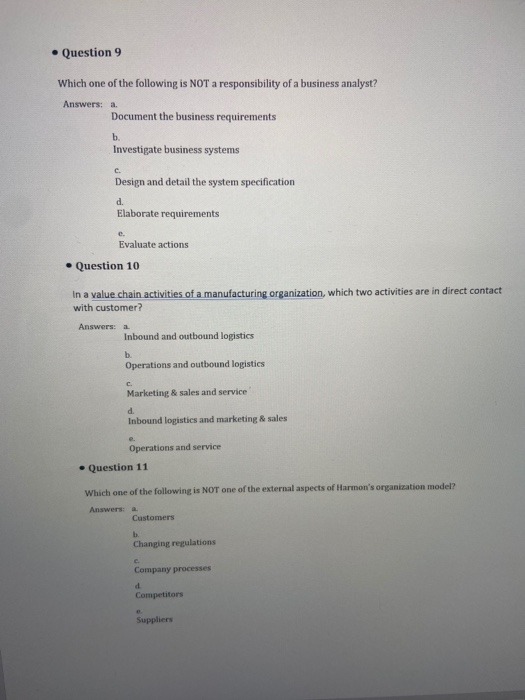
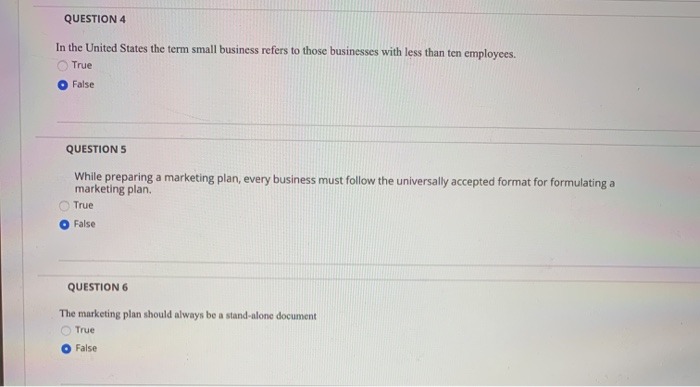
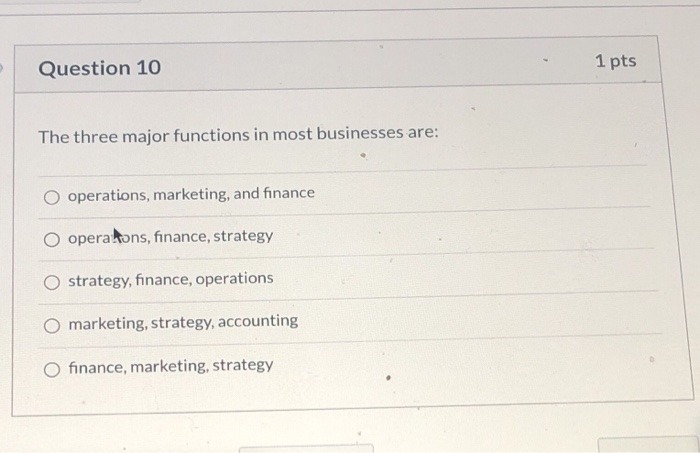

Step by Step Solution
There are 3 Steps involved in it
Step: 1

Get Instant Access to Expert-Tailored Solutions
See step-by-step solutions with expert insights and AI powered tools for academic success
Step: 2

Step: 3

Ace Your Homework with AI
Get the answers you need in no time with our AI-driven, step-by-step assistance
Get Started


